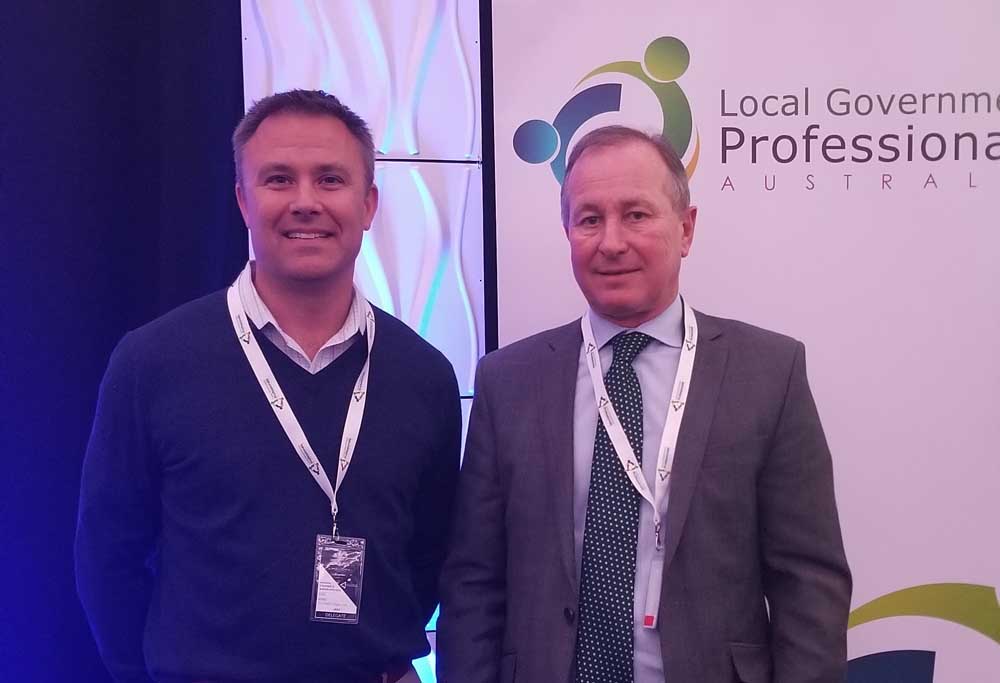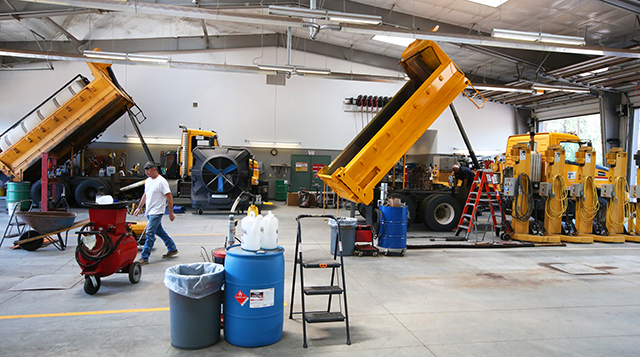Bend city manager, Australian city manager learn from cities
Published 12:00 am Wednesday, September 26, 2018

- Eric King, Bend city manager, left, land Tim Frederico, director of corporate development for the Frankston City Council in Victoria, Australia, found out how much the two cities have in common through an exchange program. (Submitted photo)
They may be 8,100 miles apart, but Bend and Frankston City in Victoria, Australia, have a lot in common. At least that’s what leaders from each city learned this summer during an exchange program.
Like Bend, Frankston City has an economy dominated by health care and hospitality.
Trending
Like Bend, Frankston City struggles with the high cost of housing and capped property taxes.
Like Bend, Frankston City’s government is working on ways to use data to drive city services.
Bend City Manager Eric King spent a week in Frankston City in August, and Tim Frederico, director of corporate development for the Frankston City Council, was in Bend last week as part of an exchange program through the International City/County Management Association.
“We’re united by so many similar issues,” Frederico said.
While the two cities face similar challenges, there are also key differences.
Australia doesn’t have county governments, so cities handle services like health care and dog licensing that in Oregon are handled by counties. Australian cities also aren’t responsible for police or fire services, which make up much of American city budgets.
Trending
Frankston City, a Melbourne suburb with about 134,000 residents, has the same council-manager form of government as Bend, where part-time elected councilors set policy and the city’s full-time executive runs day-to-day operations. But the Australian city is less transparent about government operations than the American one, Frederico said, and he intends to change that.
In Bend, work sessions — the less formal meetings in which elected officials and city staff discuss upcoming policy decisions — are open to the public. In Frankston City, many of these discussions happen behind closed doors.
“It’s a very different culture,” Frederico said.
Frederico wants to open more work sessions to Frankston City residents and use a committee process like Bend’s to keep stakeholders involved in city projects, he said.
King, meanwhile, said he focused on the corporate structure that exists in Frankston City. For years, the larger Australian city has produced quarterly reports, which Bend started working on in 2017, and Frankston City has a clear brand for its city, he said.
“It’s about how you position the organization,” he said. “You enable the organization to do good work.”
Frankston City also is a model for ways that cities can manage assets, including roads, parks and buildings, King said. Bend, with a population of 86,765 people, is doing a good job now of tracking the condition of its roads, but it can still learn how to better handle other city property, he said.
King participated in another exchange with a city in New Zealand six years ago through the International City/County Management Association, and he said both trips have helped him think about how to improve the way government works in Bend.
“Sometimes we get insular in our thinking,” he said.
The association and King’s personal funds paid for the trip, and he used vacation time while in Australia.
— Reporter: 541-633-2160; jshumway@bendbulletin.com








